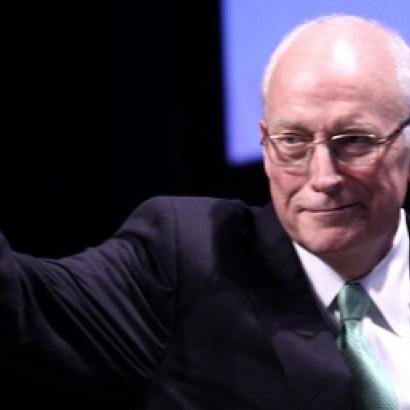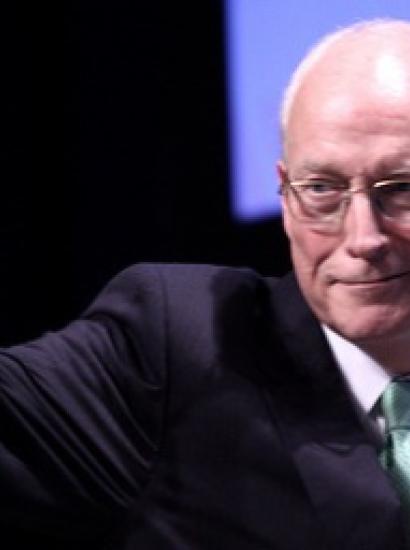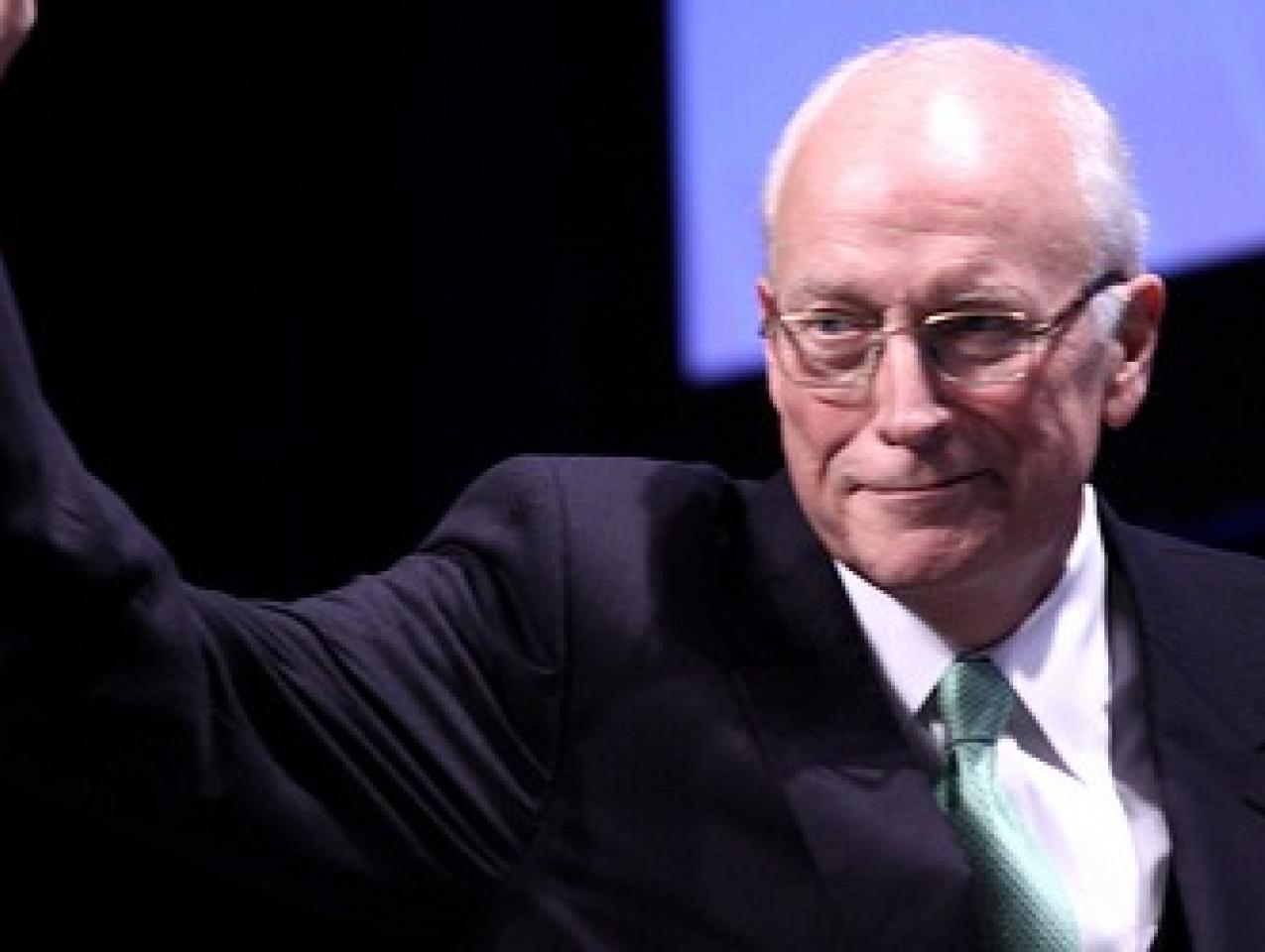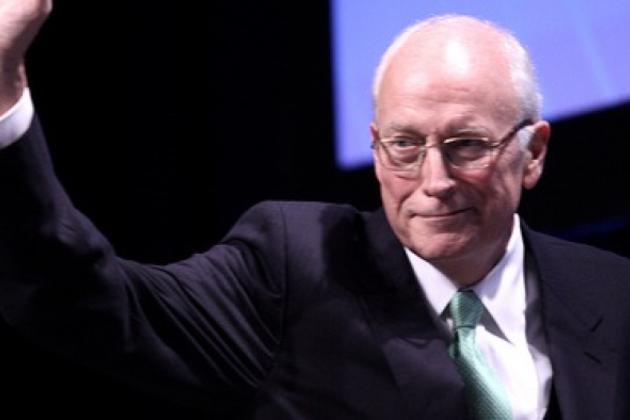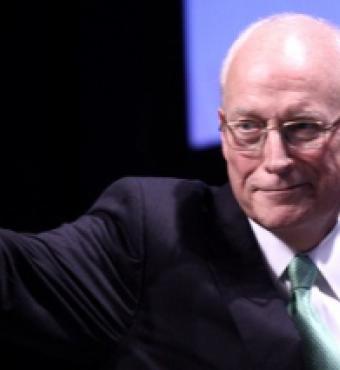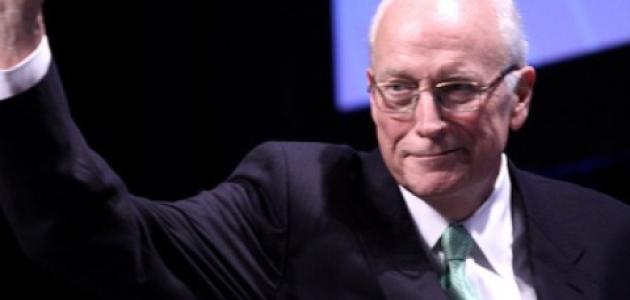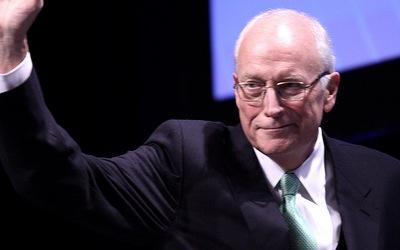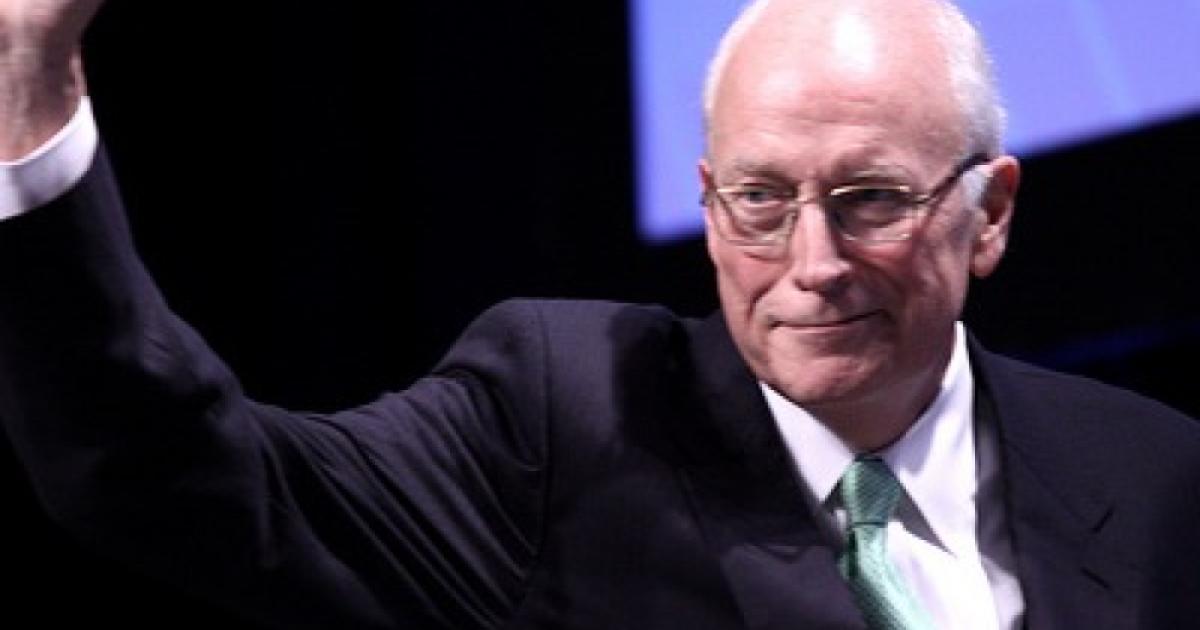- International Affairs
- US Foreign Policy
- History
- Politics, Institutions, and Public Opinion
Former Vice President Dick Cheney’s memoir In My Time* has earned strong rebuttals and bitter sound bites in its first weeks of publication. Oddly, most anger so far has been voiced by former colleagues in the George W. Bush administration or in the Republican Congress—especially by former Secretaries of State Colin Powell and Condoleezza Rice, and once presidential candidate Senator John McCain—who feel that Cheney either has not accurately recorded their private conversations and meetings, or, if he were roughly accurate, was too indiscreet in publishing accounts of them.
The supposedly controversial Cheney memoir is not as provocative as the media hype accompanying its initial release; most controversies focus on just two chapters concerning the response to 9/11 and the Korean nuclear crisis, where he is at odds with both of Bush’s Secretaries of State.
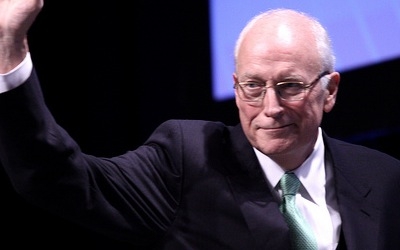
Photo credit: Gage Skidmore, via flickr
Cheney chides Powell on two grounds. First, Powell allegedly danced about with the liberal press during the hysteria that arose over Iraq, using backdoor media channels to distance himself from an increasing unpopular and demonized administration while putting on an official face of consent and harmony. Second, Powell did not promptly step forward to insist to the Special Prosecutor or to President Bush that his own subordinate, Richard Armitage, had probably first revealed to reporters the CIA associations of Valerie Plame.
However blunt those assertions, are they really all that much in dispute? Powell, Armitage, and Powell’s Chief of State at the State Department, Lawrence Wilkerson, increasingly became estranged from Bush’s foreign policy and were not shy about their criticism of Iraq immediately after leaving their offices. In subsequent interviews, they have reiterated their purported long-standing doubts about most aspects of the war on terror and indeed the policies of their bosses. Liberals in the press adored them as principled servants pressured by dark forces; conservatives felt that they were never really supportive of a policy that they did not believe in—and yet were only explicit about that when violence in Iraq caused near hysterical animosity to the Bush administration.
Cheney’s details of the bizarre Plame case—that Scooter Libby was charged with a crime that probably did not exist, given Plame’s mostly overt status, and if it had existed, Armitage was far guiltier of it—are likewise hardly controversial. Does anyone believe that Armitage did not first disclose Plame’s status to reporter Robert Novak, or that Powell was not informed of that fact as early as October 2003?
Of course, Cheney—like President Bush, George Tenet, Donald Rumsfeld, and soon Condoleezza Rice—records events as he saw them, and naturally through his own lenses that justify his side of the dispute. Future historians will collate these various memoirs and through comparison and outside data determine their relative reliability. So again, why the hysteria now that the much criticized Cheney has finally given us his side?
Take away Iraq and water-boarding, and Cheney would be as highly regarded in retirement as George H. W. Bush is.
Certainly a John McCain (who once called Donald Rumsfeld one of the worst Defense Secretaries in history), or a Colin Powell (who after proclaiming himself a moderate Republican in 2008 endorsed a left-wing, unapologetically fierce critic of his own administration over moderate Republican and long-time friend John McCain) have been far more critical of the Bush administration than it ever has been of them. More importantly, for every vignette that cast a Powell as self-serving, or a McCain as close-minded, Cheney offers equally admirable portraits (Powell was a "superb" Chairman of the Joint Chiefs; McCain was "terrific" on the surge). Cheney’s contention is not that his administration colleagues were not good public servants, but that specifically during the hysterical times between 2003 and 2007, they were less willing to confront critics or they pulled punches in order not to incur any more of the crazed invectives of those times. Such tentativeness, Cheney argues, ultimately hurt the administration. Cheney clearly believes that strong-willed people, not just policies, make or break a government.
In response to his charge that they were trimmers, those criticized will reply that Cheney needlessly encouraged more divisiveness. Only history will sort it all out—as well as Cheney’s positions on a number of issues. He did not trust Yasser Arafat; was an early proponent of the surge; wanted out of the Anti-Ballistic Missile treaty with post-Soviet Russia; felt Syria’s nuclear facility should be taken out; insisted that water-boarding three terrorists saved lives; argued that the new anti-terrorism protocols kept America safe for a decade; opposed the forced resignation of Donald Rumsfeld; felt that Scooter Libby was set up; maintained that North Korea could not be appeased only deterred; and had doubts about the Harriet Miers Supreme Court nomination. Future critics will have to demonstrate that either these views were, in fact, not held by Cheney, or that they were wrong-headed.
Cheney, as is the habit of nearly all prominent statesmen, has written an apologia pro vita sua covering some forty years of public service. Most of his narrative is a workmanlike account of working for Presidents Gerald Ford, George H. W. Bush, and George W. Bush, and serving in Congress for a decade. A few oddities arise—there is far less detail about George W. Bush or the background politics surrounding the Wall Street crisis of September 2008 than one might expect given Cheney’s tumultuous eight years of service following 9/11. More importantly, anyone who completes this 565-page memoir would have liked to have fathomed the inexplicable mystery of Cheney’s life: How exactly had a once beloved public servant—a soft-spoken conservative who worked with Gerald Ford to defeat rival Ronald Reagan—been reduced to demonic status during the furor that erupted after 9/11?
Cheney, remember, before 2001 was praised for his sobriety, his close congressional friends of both parties, his intimate ties to the centrist Bush family, and his unease with partisan rancor. By 2000 he had achieved "Wise Man" status even in the liberal media. As a presidential chief of staff, defense secretary, and influential congressman, Cheney was the Odyssean fixer, a multi-talented consigliore who said little, but was usually relied upon to solve crises and calm the waters. No doubt the Bush I circle wanted Cheney as vice president on the ticket in 2000 to curb the natural exuberances of the then-youthful and supposedly impulsive George W. Bush. Yet by 2008, Cheney was routinely defamed in the major papers as a ‘war criminal’ and ‘traitor,’ and his own approval ratings sunk below even those of George W. Bush.
Cheney clearly believes that strong-willed people, not just policies, make or break a government.
We find the answer only by reading between Cheney’s lines. A brilliantly conceived removal of Saddam Hussein led to a bloody and unexpected insurrection in Iraq. That growing violence in turn raised controversy over why we had attacked that country, especially when no weapons of mass destruction, the apparent casus belli, were found. In this regard, Cheney had recommended the water-boarding of three known al Qaeda terrorists and, when the war went badly, was far more easily dubbed a "war criminal" for doing so. Take away Iraq and water-boarding, and Cheney would be as highly regarded in retirement as George H. W. Bush is.
Cheney does not adequately explain why the administration placed all of its preemptive eggs in the WMD basket, when the Congress, in bipartisan fashion, had authorized a war based on twenty some other writs, including Iraq’s harboring of terrorists, its violations of UN resolutions, and its attempted assassination of a U.S. president—none to this day ever refuted. The failure to sell the war on the edicts of Congress gave the administration no margin of error should the occupation prove costly and no WMD be found.
In addition, for still unexplained reasons, the Bush administration never really replied forcefully to the "Bush lied, thousands died" slurs—or the entire Bush Derangement Syndrome voiced by the likes of Cindy Sheehan, Michael Moore, and Nancy Pelosi. Cheney is clearly angry that these false charges were not forcefully rebutted, but we wish to know why. Was it because of his own stoic fight with three-decades of debilitating heart disease, his own sense of restraint and dignity befitting the office, the president’s naïve trust in compassionate conservatism, or the freelancing of cabinet officials who could not orchestrate a unified defense?
A subtext to the latter half of the memoir is that in early 2009, when Barack Obama was deemed "godlike," Cheney—out of office, ill, mostly alone, and terribly unpopular—finally went public and took on Obama’s serial criticism of the Bush-Cheney anti-terrorism protocols. Those were soon to be validated when Obama embraced or expanded almost everything that Cheney had helped craft since 2001. In mythological terms, the post 9/11 Cheney was no longer a fixer like Odysseus, but became an unyielding Ajax who would rather be right than liked—or rather knew that to be right in Washington, he mostly could not be liked.
***
The young Cheney of his autobiography loyally served as chief of staff for an admirable—but sometimes inept—Gerald Ford. Cheney was too savvy and loyal to be swept away in 1976 by the charismatic but long-shot presidential candidate Ronald Reagan (who seemed far closer, philosophically, to Cheney’s conservative Wyoming creed). In this regard, as Defense Secretary for George H. W. Bush, Cheney picked Colin Powell as Chairman of the Joint Chiefs precisely because the latter was reserved and judicious—a doppelganger to Cheney himself.
Cheney was never a wide-eyed neoconservative. He had, in fact, advised to let Saddam be after the 1991 Gulf War, and not cause a ruckus with allies, Arab oil exporters, and the UN by going to Baghdad to oust the wounded Baathist government. He was a deficit hawk at the Pentagon and cancelled what he felt were wasteful Pentagon projects like the carrier-based stealth A-12 bomber—and he would have cancelled the Marine’s Osprey had he had his way. As the ultimate Washington DC-insider, a younger Cheney sensed consensus and followed it—and was for three decades widely respected precisely for that predictability and reliability.
Cheney was never a wide-eyed neoconservative.
At this juncture, old Cheney chums would interject that after September 11, 2001, "he was not the Dick Cheney I used to know"—that is, once he pressed for enhanced interrogations, the Iraq war, promoting democracy after the removal of tyrants, getting tough with nuclear Korea, and insisting on an uncompromising and unapologetic global war on terror. His erstwhile friends wondered whether this now unpopular controversial Cheney was fatalistic after three heart attacks or had been brainwashed by neocon zealots in the Bush administration.
Cheney’s critics had a point here, but not in the fashion that they imagined. The Cheney of the first 328 pages of the memoir certainly does seem a quite different man from the one described in the last two hundred pages, in ways not wholly explicable by greater age, experience, and office. Again, the younger Cheney was circumspect and bureaucratic—he was politically astute in winning the respect of his peers. Cheney 2.0 was far bolder.
He did not care much for what people said about him, and was not shy in promoting his tragic views to his president and cabinet: Katrina was an inevitable screw-up, given that the governor of Louisiana and the mayor of New Orleans were clueless; bad things happen in war, the winner makes the fewest rather than no mistakes; thugocracies like North Korea cannot be reasoned with or coddled, only deterred and corralled; Arafat was and would always be a thug you could never do business with; the suffering of three known terrorists is not worth much worry given their murder of 3,000 innocent civilians and the fear they instilled in millions of Americans; Arab dictatorships talk grandly of counsel and multilateralism, but privately calibrate their interests in terms of Thucydidean honor, fear, and self interest.
In other words, the latter demonized Cheney is perhaps a far more interesting official than his earlier self who was canonized in bipartisan fashion. The more ill and more isolated Cheney became in the Bush administration, the more antithetical he seems to his earlier more robust and upbeat self, and the more we should admire him—in the same fashion we concede respect to the anti-heroes of classical Western films, who accept that the help that community needs in extremis will destroy the rare person who must deliver it.
Sticking loyally by Libby or Rumsfeld, as Cheney did, was not politically wise. Ford’s chief of staff would never have shown such open contempt for reporters. As a canny infighter when Secretary of Defense, Cheney would have never allowed himself to be tagged with sole parentage of water-boarding, a tactic that liberal congressional leaders were well aware of—and yet kept silent about given both their fears of another 9/11-style attack and the need for future plausible deniability.
Cheney’s liberal critics have derided In My Time; apparently so will many of his former conservative friends. As historians acknowledge his earlier record of selfless public service, they will nonetheless become far more fascinated with—and ultimately impressed by—Cheney’s final tumultuous eight years as vice president. In his last office, Washington’s ultimate insider forcefully did what he thought his imperiled country needed—and let others worry about whether he had become a shunned outsider.
On this tenth anniversary of September 11, the United States owes much to this maligned public figure for his part in giving us a decade of safety from further attacks.








